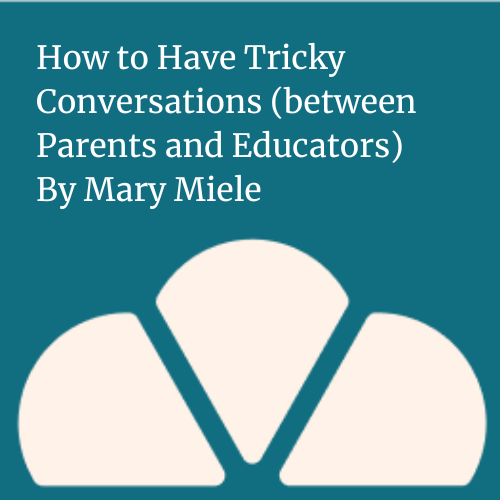
Tricky conversations are an inevitable part of life, and they are no exception when it comes to the dynamic between parents and educators. Just like in our personal relationships, when we engage in more intimate connections, such as marriage or dating, tricky conversations are bound to happen. The key is to approach these discussions with empathy, understanding, and a growth mindset. In this blog post, we will explore strategies for having those challenging conversations with parents as educators and why they are crucial for the success of our students.
Acknowledge the Inevitability
First and foremost, it’s important to recognize that tricky conversations are a natural part of building partnerships between parents and teachers. As educators, we work alongside parents to support the learning journey of our students. Just as in any close relationship, misunderstandings and differing perspectives are bound to arise. It’s essential to approach these conversations with the understanding that they are a normal part of the process.
Have Self-Grace and Compassion
In order to navigate tricky conversations effectively, it’s crucial to have self-grace and compassion for ourselves. Conversations that are difficult often require a set of skills that we may still be developing. Accept that you might not always know the right words to say or the best way to handle a challenging situation, and that’s perfectly okay. Remember, there is an infinite number of opportunities to improve and learn from these experiences.
Utilize Effective Tools
Tricky conversations can encompass a wide range of topics, from sharing concerns about a student’s performance to addressing conflicts with parents or colleagues. To handle these conversations with grace and effectiveness, consider using the following tools:
a) Approach with Curiosity and Questions: Begin the conversation with an open mind and a genuine desire to understand the other person’s perspective.
b) Acknowledge the Challenge: Let the other party know that you recognize the conversation is tricky and that you’re committed to discussing a difficult topic respectfully.
c) Stay Calm: Take deep breaths and maintain your composure during the conversation. This will help you stay focused and receptive to feedback.
d) Use Data: Whenever possible, rely on data to support your points. Sharing student work or describing their classroom experience can make your concerns more tangible.
e) Highlight the Benefit: Remind the parent or colleague that your shared goal is the child’s academic and personal growth.
f) Avoid Assumptions: Strive to avoid inserting your own assumptions or judgments into the conversation. Instead, ask questions to build mutual understanding.
Embrace the Growth Opportunity
Remember that every tricky conversation is an opportunity for growth as a professional educator. Embrace these moments as chances to enhance your ability to support students and parents. By leaning into these discussions, you can evolve and become a more effective advocate for your students.
We can view tricky conversations as opportunities for personal and professional growth, ultimately benefiting the students we all aim to support and nurture. So, the next time you find yourself facing a tricky conversation, remember these strategies, and approach it with confidence and empathy.


